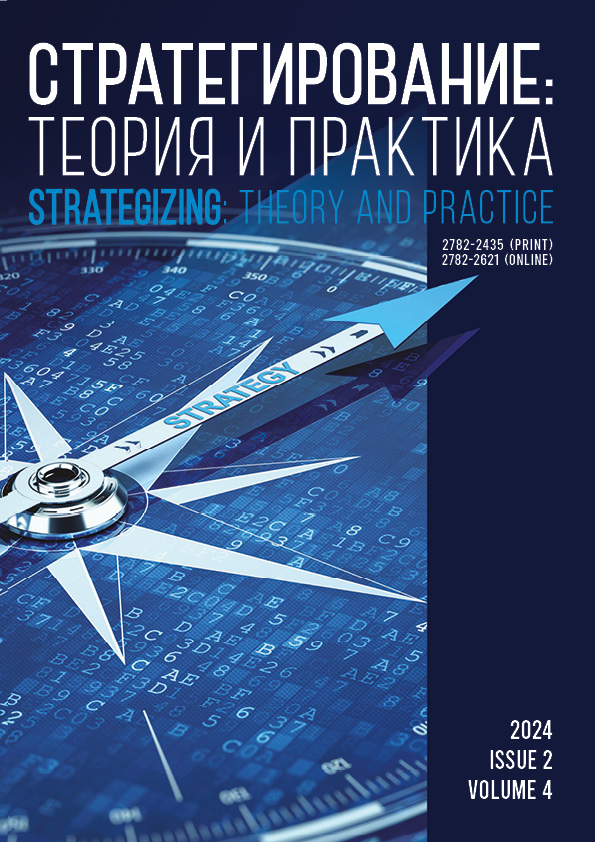Moscow, Moscow, Russian Federation
The pace of metropolitan life is growing higher and higher. To keep up with it, Moscow residents have to abandon cars and public transport in favor of personal mobility devices, e.g., electric scooters. As a result, the state authorities are developing a unified strategy for urban public transport that would include personal mobility devices and their rent. An effective strategy should integrate all innovative public transport vehicles into a single urban transport system. Technopolis is a special economic zone of innovation clusters in Moscow that offers conditions for design and production of innovative electric individual mobility devices. New-generation vehicles that meet the needs of metropolitan residents will become a key strategic vector in the development of Moscow’s transport system. The key strategic goals are to improve the quality of urban life and to ensure the national technological sovereignty. Modernization and consistent implementation of production facilities can stimulate innovative technologies in the transport sector and its progressive transformation nationwide. Moscow’s innovation clusters produce innovative technologies, test them, and spread the most effective innovations onto all regions.
transport strategy, megalopolis strategy, electric transport, transport infrastructure, innovation clusters
1. Apelʹ K.-O. Transformatsiya filosofii [Transformation of philosophy]. Moscow: Logos; 2001. 338 p. (In Russ.)
2. Astafiev SA, Astafieva PS. Influence of personal mobility devices on environmental amenities. Journal of Construction and Architecture. 2024;26(1):70–82. (In Russ.) https://doi.org/10.31675/1607-1859-2024-26-1-70-82
3. Auzan AA, Nikishina EN. Sotsiokulʹturnaya ehkonomika: kak kulʹtura vliyaet na ehkonomiku, a ehkonomika – na kulʹturu [Sociocultural economics: how culture and economy affect each other]. Moscow: Faculty of Economics of Lomonosov Moscow State University; 2021. 200 p. (In Russ.)
4. Blaug M. Metodologiya ehkonomicheskoy nauki, ili Kak ehkonomisty obʺyasnyayut. 2-e izd [Methodology of economic science, or Economists explain. 2nd ed.]. Moscow: Zhurnal Voprosy ehkonomiki; 2004. 415 p. (In Russ.)
5. Gromova EA. Model of legal regulation of clusters in the Russian Federation. Russian Journal of Economics and Law. 2024;18(1):121–133. (In Russ.) https://doi.org/10.21202/2782-2923.2024.1.121-133
6. Dobrynina MV, Rastimeshina TV. University as a driver of new industrial policy of Russia: Efficiency evaluation (using the case of National Research University of Electronic Technology). Science and Technique. 2023;23(1):67–79. (In Russ.) https://doi.org/10.21122/2227-1031-2024-23-1-67-79
7. Zakharova OV, Zherebyateva NV. The management of greening societies using practice theories. Public Administration Issues. 2024;(1):61–83. (In Russ.) https://doi.org/10.17323/1999-5431-2024-0-1-61-83
8. Ilina IN. Changing the approach to urban master planning: transformation of meaning or name change. Public Administration Issues. 2024;(1):84–109. (In Russ.) https://doi.org/10.17323/1999-5431-2024-0-1-84-109
9. Ilkevich SV. The sources of competitive advantages of electric scooter sharing services. Strategic Decisions and Risk Management. 2019;10(3):238–251. (In Russ.) https://doi.org/10.17747/2618-947X-2019-3-238-251
10. Kazachonok VV. Personal mobility devices: Legal regulation. Bulletin of the Kazan Law Institute of Mia of Russia. 2021;12(2):165–170. (In Russ.) https://doi.org/10.37973/KUI.2021.32.43.005
11. Kalinin VS. Prospects of youth communication communities in strategic student communication. Strategizing: Theory and Practice. 2023;3(4):472–484. (In Russ.) https://doi.org/10.21603/2782-2435-2023-3-4-472-484
12. Kastelʹs M. Informatsionnaya ehpokha. Ehkonomika, obshchestvo i kulʹtura [The rise of the network society, the information age: Economy, society and culture]. Moscow: GU VSHEH; 2000. 606 p. (In Russ.)
13. Kvint VL. The concept of strategizing. Vol. 1. St. Petersburg: NWIM RANEPA; 2019. 132 p. (In Russ.)
14. Kvint VL. The concept of strategizing. Vol. 2. St. Petersburg: NWIM RANEPA; 2020. 164 p. (In Russ.)
15. Kvint VL. The strategic leadership of Amir Timur: Comments on the Code. St. Petersburg: NWIM RANEPA; 2021. 204 p. (In Russ.)
16. Kvint VL. The global emerging market: strategic management and economics. Moscow: Biznes atlas; 2012. 627 p. (In Russ.)
17. Kvint VL, Alimuradov MK, Zadorozhnaya GV, Astapov KL, Alabina TA, Bakhtizin AR, et al. A conceptual future for the Kuzbass region: Strategic outlines of developmental priorities through 2071, a 50-year perspective. Kemerovo: Kemerovo State University; 2022. 283 p. (In Russ.) https://doi.org/10.21603/978-5-8353-2812-3
18. Novikova IV. The concept of employment strategy for the digital economy. Kemerovo: Kemerovo State University; 2020. 254 p. (In Russ.) https://doi.org/10.21603/978-5-8353-2609-9
19. Rubtsova MV. Problems of road safety when using means of individual mobility in Russia. Modern Science. 2023;(2):27–30. (In Russ.)
20. Khvorostyanaya AS. Strategizing Singapore’s creative economy: experience in workforce development. Economics of Sustainable Development. 2023;54(2):136–140. (In Russ.)
21. Khvorostyanaya AS. Strategizing of the creative economy youth innovation ecosystem national brands (South Korean experience). Administrative Consulting. 2023;171(3):46–56. (In Russ.) https://doi.org/10.22394/1726-1139-2023-3-46-56
22. Kvint V. The global emerging market: Strategic management and economics. New York: Routledge; 2009. 488 p. https://doi.org/10.4324/9780203882917





